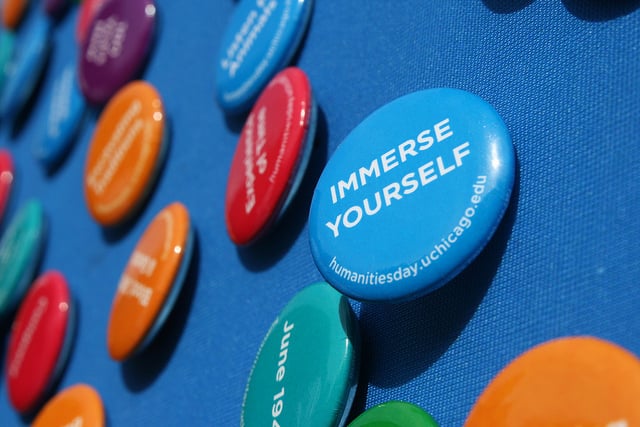3 Ways to Immerse Yourself in a Language Right Now
You don’t have to travel halfway around the world to become immersed in a language. Sometimes, you don’t even have to take drastic steps, either. In fact, some of the smallest and quickest little changes in your life can lead to big gains in language learning.
How, you may ask? Well, it’s all about the instant immersion. Obviously, immersion happens over time and through various levels of intensity. In this sense, it’s most important to remember that learning a language thoroughly is a long-haul game – not something that can be rushed. But, that also doesn’t mean that small changes in the way learning a language is approached still don’t have a big impact.
Here’s how you can make the most of your language learning experience by taking advantage of just a few small changes in your routine.

Photo via Flickr
Working on your fluency, but need some help? Take a free placement test to see how your level measures up!
1. Change the language settings over to your target language on your devices
Okay, this can also be a bit dangerous if your iPhone starts to malfunction and you can’t make out heads or tails of what your phone is saying. But in general, changing the language settings of your phone is a great (and super easy) way to quickly throw a new language in the mix of your daily routine. It’s also very helpful for learning the basics of common vocabulary and other useful ways of conveying information.

Photo via Pexels
2. Opt for radio music and movies in your target language (or, at least use subtitles)
Depending on your current level and the level you wish to attain, it could be really helpful to start transitioning some of your movies and music into your target language. But just like with changing your iPhone over, there may be possible downsides (the biggest being that movies and music often work to relax us, so that aspect might be taken away if it’s in a foreign language). Regardless, it’s possible that you’ll quickly be surprised by how much you can pick up from simply ingesting the information from media exposure.
3. Use sticky notes or other labelling methods to learn the vocabulary around you
This can be an incredibly helpful method, especially for those who have specific targeted vocabulary or topics to learn about. By labelling the world around you and learning more vocabulary (which can sometimes be harder than grammar principles), your skills can improve much quicker and more fluidly than they would otherwise.

Photo via Pixabay
While it may take a long time to ever feel proficient in another language – and it’s something that all language learners typically struggle with – it’s important to remember that, with even very small changes, it’s possible to make a lot of progress. What’s most important is that there’s a will to learn and the means to make it happen, no matter how much effort one can put in. Happy learning!
